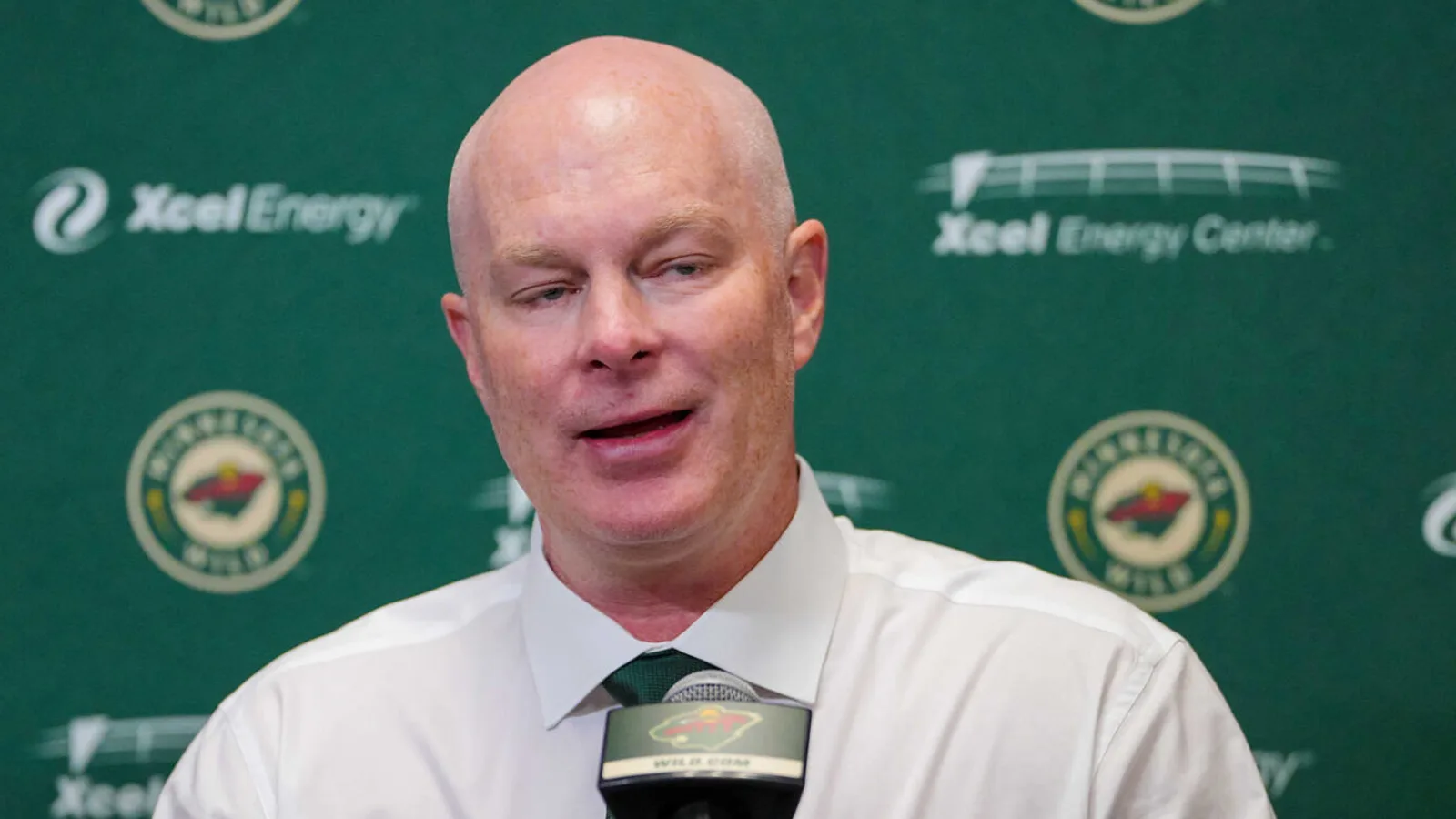In a deeply controversial incident, Minnesota Wild‘s star player Reese Johnson experienced a violent outburst following a severe concussion, igniting a fierce debate about player safety in the NHL. This incident has cast a harsh spotlight on the league’s handling of concussions and the broader issue of athlete mental health.
During a high-stakes game against a fierce rival, Johnson was involved in a brutal collision that left him with a severe concussion. The hit, which occurred midway through the second period, was immediately identified as a serious injury, prompting medical staff to remove Johnson from the game for further evaluation. Despite these measures, what transpired next has shocked both fans and professionals alike.
Back in the locker room, Johnson exhibited aggressive and erratic behavior, reportedly shouting, throwing equipment, and resisting medical intervention. This violent outburst has raised critical questions about the adequacy of current NHL concussion protocols and the long-term impact of such injuries on players’ mental health.

Fans and critics are divided. Many supporters argue that Johnson’s behavior underscores the urgent need for more stringent concussion protocols. They point out that the current measures are not enough to protect players from the invisible and often long-lasting effects of head injuries. Critics are calling for comprehensive reforms, including mandatory longer recovery periods, improved mental health support, and more rigorous medical evaluations to ensure players are fully healed before returning to the ice.
The Professional Hockey Players’ Association (PHPA) has joined the chorus of concern, urging the NHL to prioritize the health and safety of its players over the competitive demands of the sport. They argue that incidents like Johnson’s outburst are a clear sign that the league needs to do more to protect its athletes.
However, not everyone agrees. Some voices within the hockey community suggest that Johnson’s reaction, while extreme, is an anomaly and not indicative of a larger systemic issue. They argue that hockey is an inherently physical sport, and injuries, including concussions, are an unavoidable part of the game. These individuals believe that the existing protocols are sufficient when properly followed, and they caution against overreacting to a single incident.

In response to the controversy, the NHL has reiterated its commitment to player safety. League officials have stated that they are constantly reviewing and updating their concussion protocols based on the latest medical research. They have expressed concern for Johnson’s well-being and assured that he will receive the necessary care and support during his recovery.
The incident involving Reese Johnson is a stark reminder of the complex challenges posed by concussions in professional sports. It highlights the urgent need for ongoing dialogue, research, and policy development to protect athletes’ long-term health and well-being. As the debate continues, all eyes will be on the NHL to see how it addresses these critical issues and whether it will implement the changes necessary to prevent future incidents.
